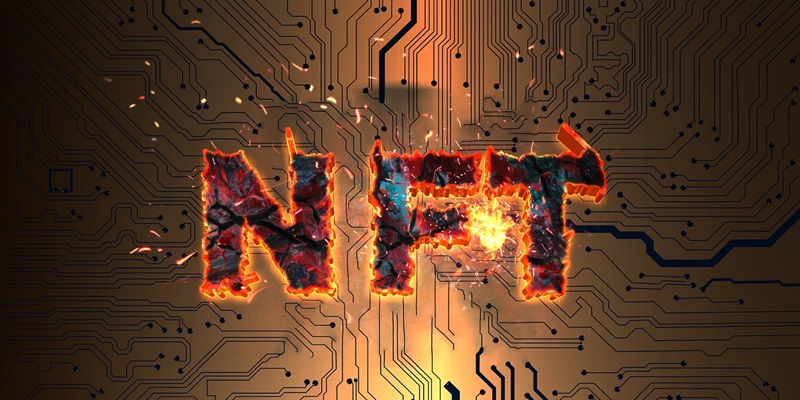In the world of blockchain technology, Non-Fungible Tokens (NFTs) have emerged as a groundbreaking innovation. Unlike cryptocurrencies such as Bitcoin or Ethereum, which are fungible and interchangeable, NFTs are unique and possess distinct properties that set them apart from any other token. This uniqueness has opened up a multitude of opportunities, with NFTs transcending the realms of digital art and gaming and acquiring relevance in various industries, including real estate, content creation, and identity verification.
Introduction to Non-Fungible Tokens (NFTs) and Their Uniqueness
NFTs are revolutionizing the concept of ownership and value in the digital age. Each NFT is associated with a specific asset, whether it be digital art, music, videos, or even virtual properties in games. The uniqueness of NFTs ensures their scarcity and authenticity, making them desirable assets for buyers and collectors. By utilizing blockchain technology, NFTs provide a transparent and immutable record of ownership, enhancing trust and security within the ecosystem.
NFTs are expanding beyond digital art and gaming into real estate
The influence of NFTs extends beyond the digital realm, as they have made a notable foray into the world of real estate. Tokenization of real estate assets using NFTs has the potential to revolutionize property ownership, making it more accessible, liquid, and secure. Fractional ownership of high-value properties becomes possible, allowing a broader pool of investors to participate in the real estate market. Additionally, the transparency and traceability offered by NFTs can streamline property transactions and reduce fraud.
How Content Creators, Musicians, and Writers Can Benefit from NFTs
NFTs have provided a transformative solution for content creators, musicians, and writers to protect their work and gain fair compensation for their creations. By tokenizing their work, artists can establish proof of ownership, ensuring that they receive royalties whenever their work is bought, sold, or licensed. This eliminates the need for intermediaries and empowers creators by giving them direct control over their intellectual property and revenue streams.
NFTs’ potential in enhancing identity verification processes
The unique properties of NFTs can also enhance identity verification processes. NFTs can be used to create digital identities that are secure, tamper-proof, and portable across different platforms. By attaching verified personal information to an NFT, individuals can have better control over their digital presence and protect themselves from identity theft or data breaches. Moreover, NFTs can streamline Know Your Customer (KYC) processes, making them more efficient and reliable.
Challenges faced by NFTs
While NFTs present numerous opportunities, they also face several challenges that need to be addressed for their sustainable growth and adoption. One significant concern is their environmental impact, particularly in terms of energy consumption. The energy-intensive nature of blockchain networks used to mint and trade NFTs has raised questions about their ecological footprint and the need for more sustainable alternatives.
Environmental impact of NFTs
The environmental impact of NFTs has garnered attention due to the energy-intensive mining and processing required for blockchain transactions. Critics argue that the carbon footprint associated with NFTs is substantial and unsustainable. However, efforts are being made to address this concern, with the exploration of alternative consensus mechanisms that require less energy and the adoption of eco-friendly blockchain networks.
Scalability of NFT platforms
As the popularity of NFTs continues to soar, scalability has become a pressing issue. Existing blockchain networks face challenges in handling the increasing demand for NFT transactions, resulting in network congestion and high transaction fees. To ensure a seamless experience for users and support mass adoption, scalable solutions and infrastructure upgrades are necessary.
Understanding the Value Fluctuations of NFTs
Similar to many other cryptocurrencies, the value of NFTs can be subject to market volatility. Prices of NFTs can fluctuate significantly, influenced by factors such as demand, scarcity, and the reputation of the creator. This volatility presents both opportunities and risks for investors and collectors, emphasizing the importance of thorough research and due diligence in the NFT market.
The need for clearer regulatory frameworks to support mainstream adoption
To foster mainstream adoption and provide creators and investors with confidence in the legitimacy and security of the NFT ecosystem, clearer regulatory frameworks are imperative. Regulatory bodies worldwide are grappling with how to effectively govern NFTs, taking into account issues such as copyright infringement, money laundering, and investor protection. Striking the right balance between innovation and regulation will be crucial for the continued growth and stability of the NFT market.
The future of NFTs
Despite the challenges that NFTs face, ongoing developments in technology and regulation are paving the way for a more sustainable and inclusive NFT ecosystem. Innovations, such as Layer 2 solutions and Proof of Stake consensus mechanisms, offer scalability and energy efficiency, addressing existing concerns. Additionally, collaborations between industry stakeholders, artists, and regulatory bodies are crucial in establishing comprehensive guidelines and standards to protect creators’ rights and ensure the integrity of the NFT market.
In conclusion, non-fungible tokens (NFTs) are revolutionizing the digital landscape, unlocking new possibilities for ownership and value. Expanding beyond art and gaming, NFTs have found significance in the real estate sector, content creation, and identity verification. While challenges related to sustainability, scalability, and market volatility persist, ongoing efforts in technology and regulation are shaping the future of the NFT ecosystem. As the world embraces the digital age, NFTs offer a transformative path for creators, investors, and industries, redefining the concept of ownership and value in the 21st century.

